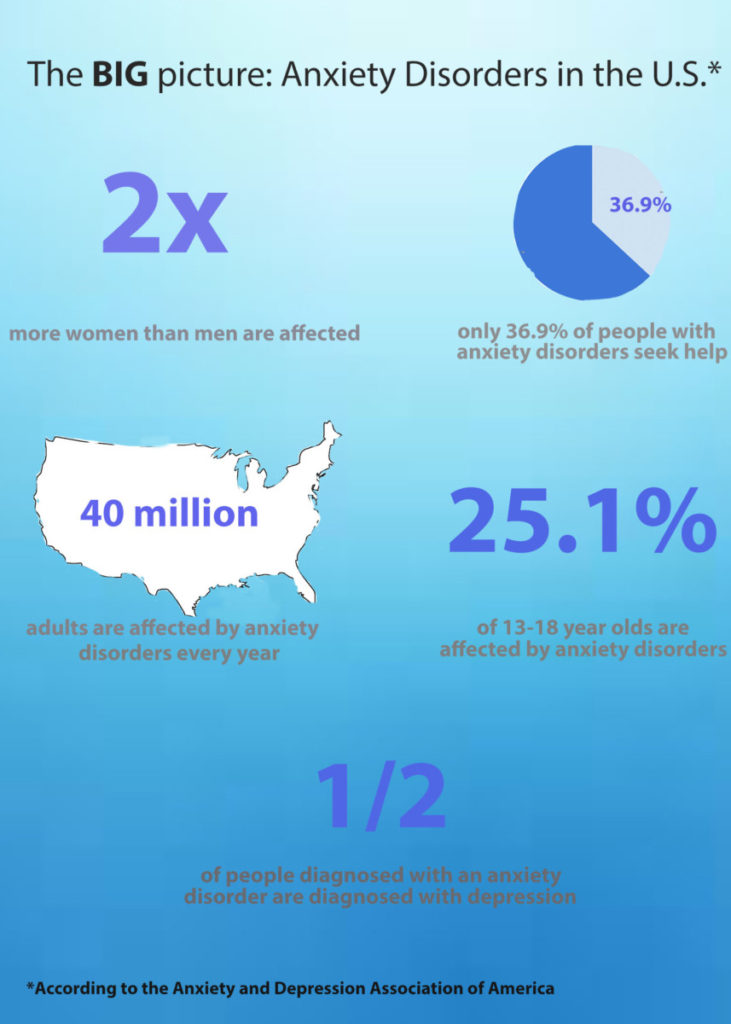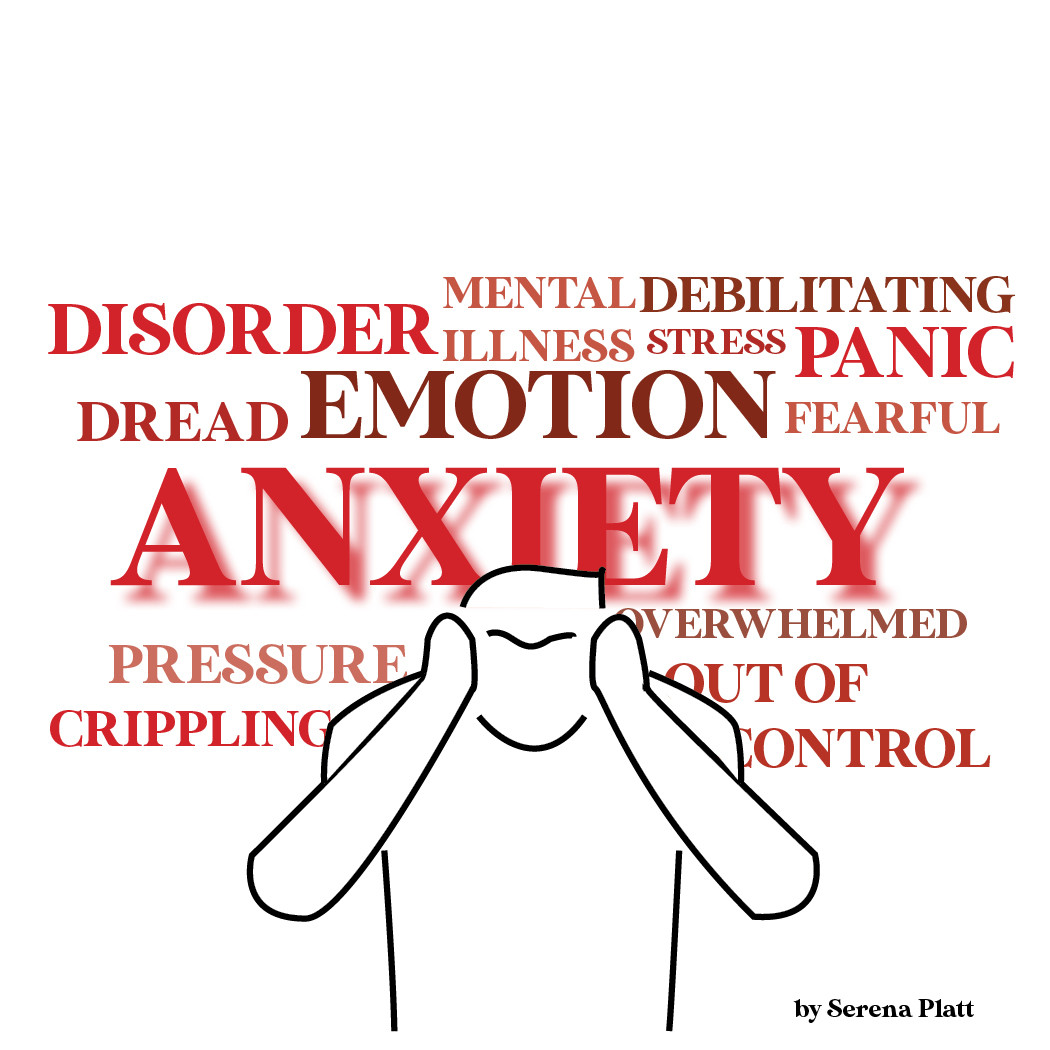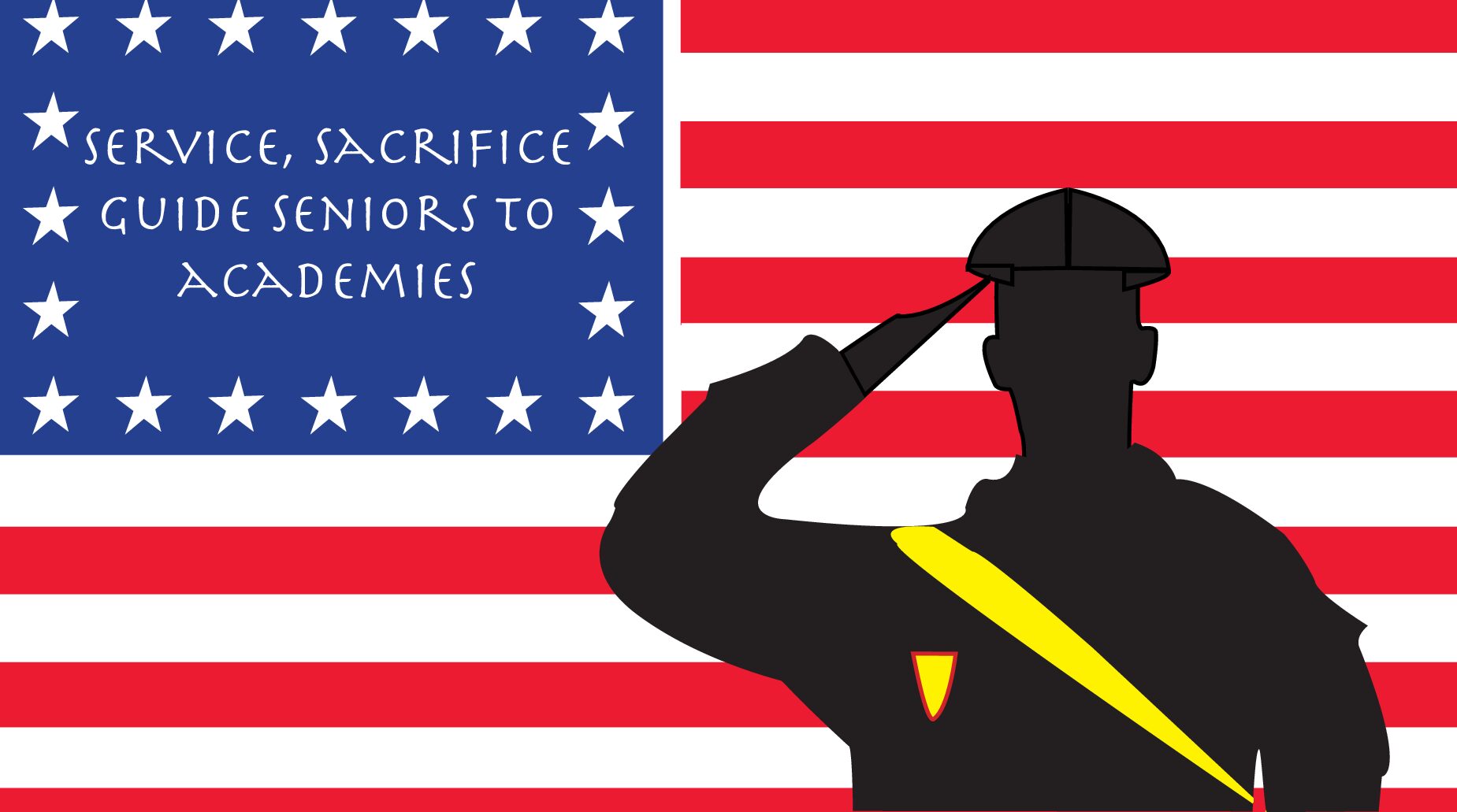Kate Hunter, Features Editor
@khuntercourant
Students aren’t actually stressed. Well, maybe some are. However, the common assumption that students are stressed can overshadow a mental health issue far worse than what some may feel while pulling an all-nighter to finish a big paper – anxiety disorders.
Anxiety is a normal emotion. Sandra Warkentin, a school psychologist, has seen the benefits of having anxiety. “I would say that all of us have anxiety, and that can be very healthy,” Ms. Warkentin said.
However, when this “healthy” feeling becomes negative, it can turn into a disorder. Maria Calcagni, another school psychologist said, “an anxiety disorder is a pervasive issue with worry, nervousness, and sometimes panic about a variety of things,” Ms. Calcagni said.
Despite this difference, anxiety disorders are often confused with feelings of healthy stress. An anonymous high school student battling with an anxiety disorder said, “there’s a difference between having an anxiety disorder and being anxious about something. You can be worried about something and not have the debilitating feeling of dread that I feel on a daily basis.”
“I would say that an anxiety disorder is one of those things that affects me every day,” the student said. “It’s a little voice telling you to be worried about something. It’s overwhelming. It’s often all I can think about even if it’s not a big deal. It can be something as simple as what I said in a conversation.”
“It makes me an overthinker,” the student said. “Like before going out on the field, you would just go and play, but I have to think about it in the context of ‘What if I make a mistake?’ ‘What if this goes wrong?’

Ms. Calcagni has seen how crippling these disorders can be. “We’ve had students that have refused to come back to school,” she said. “They start to be depressed because they want to be feeling better, but their anxiety is so bad that they can’t, which makes them feel worse. It’s a vicious cycle. Some kids go to therapy, but we’ve had some kids with severe anxiety that have been hospitalized.”
To worsen the impact, “students with anxiety disorders lose their friendships because their friends don’t understand,” Ms. Warkentin said. “The more they stay home, the more they overthink and it just gets worse and worse.”
There are many different types of anxiety disorders. “People might have general anxiety where they worry about day-to-day things,” Ms. Calcagni said. “Some people have very specific anxiety about their performance. Some people may worry about how others might perceive them. Some people might have social anxiety where they worry about their interactions with others. Some people have phobias. Some people are very fearful of public speaking.”
Unlike the pre-test or pre-game butterflies, the symptoms of anxiety disorders are overwhelming. “Some people’s minds might start to race to where they can have a panic attack,” Ms. Calcagni said. “They sometimes feel a sense of doom, sometimes their heart races. They can have sweaty palms, heartache, stomach ache, or trouble breathing.”
But, that is not always the case. “I think it kind of manifests differently for everyone. For me, I think it’s more of a procrastination instinct,” the anonymous student said. “I think it’s overstimulation to a point, there’s that voice in your head that’s telling you things, but it’s that feeling of everyone’s looking at you and when everyone’s looking at you, you can feel everything and when you can feel everything, everything’s going on at once and then you break down.”
So, why is it that certain people suffer from anxiety disorders while others don’t? “Some of it is just genetic, some people are just wired that way,” Ms. Clacagni said. “Some of it is environmental. Maybe they are growing up in a family dynamic where there is a lot of stress and high achievement. Some of it is being in a culture of perfection and competitiveness where everyone is striving to be the best at everything.”
Regardless of the triggers, anyone with an anxiety disorder deserves access to coping resources. “Something that’s been helpful for me has been taking myself out of scenarios,” the anonymous student said. “I do journaling now, which isn’t much, but it helps you sit down, consolidate your thinking, and compartmentalize all of your emotions into something that’s consumable, so it’s not the whole world coming at you at once.”
In addition to individual tasks, the high school offers a wide range of resources accessible to students. Grace Burke is the Teen Talk counselor, who works with students who need someone to talk to. “I think that the school is trying to make more resources available. The school chooses to have a mental health staff,” Ms. Burke said.
“There are two school psychologists, two school social workers, and a teen talk counselor, so if a student thinks they might need extra support, that might be a good place to start,” Ms. Caleagni said.
Perhaps, though, the most important thing the school community can do is educate themselves on the severity and commonness of anxiety disorders. “The most frustrating thing is that people think that they know what it is when they don’t at all,” the anonymous student said.




